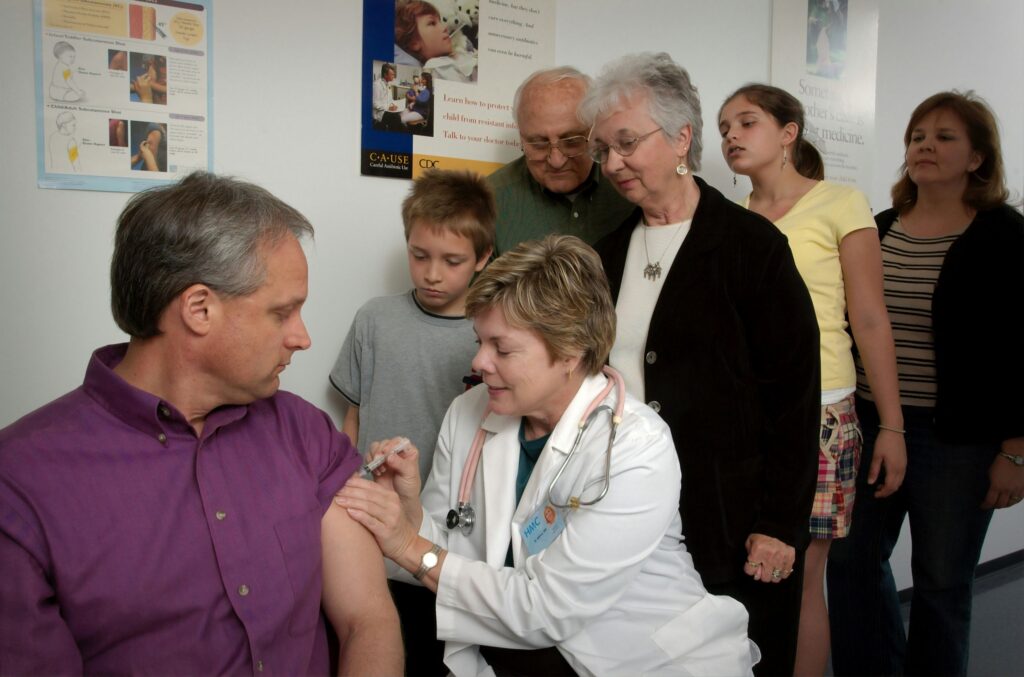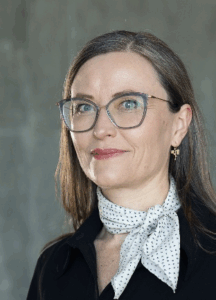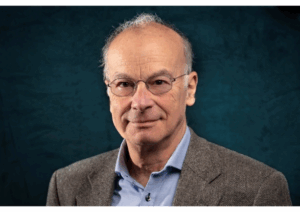
The US administration that took office on 20 January 2025 has attacked many values central to Science and Technology Studies (STS), not least academic freedom. We work in an STS center in a public health department and therefore experience attacks on research that serves the interests of marginalized people in a double sense. Many of our public health colleagues are losing access to data they depend on for their research, and the funding that sustains their salaries. When the Trump administration seeks to limit research on migrants, the social determinants of health, and inequalities of race and gender, it limits the ability of public health research to pursue its basic goals. International public health collaboration depends on shared data resources and attacks on public health in the US therefore carry global implications in a very direct sense, but attacks on the goals of the field may also affect research more broadly. Against this backdrop, we convened a meeting at the Section of Health Services, Department of Public Health, University of Copenhagen to discuss the following question: How should we respond as a research community? We did so hoping that insights from STS could help the public health field in forming its response.
To shed light on the situation, we distributed some texts to our colleagues ahead of time. Klaus Hoeyer suggested a Nature (2025) editorial titled ‘An assault on science anywhere is an assault on science everywhere’, that makes the case for protection of academic freedom. Allan Krasnik suggested another from the British Medical Journal (‘The war on equality’) that foregrounds the values of diversity, equality, and inclusion (Clark, 2025). Henriette Langstrup suggested a classic text by Hannah Arendt (2005) (‘Truth and Politics’). With these potential ways forward in mind, we entered a packed room of concerned colleagues. The discussions did not converge on a unified approach, nor should they have, but made it possible to reflect on the stakes in new ways. We do not wish to take credit for all the conversations that emerged from the meeting. Our aim was to provide a forum so that nobody had to deal with the dilemmas posed by the Trump administration alone. This article presents the conclusions we drew from the discussions that followed.
Truth and politics revisited
The key message of the Nature/BMJ editorials are captured by their titles, but the argument made by Arendt deserves a few additional words. The essay was written as a reaction to attacks Arendt experienced following her reporting on the trial of a Nazi officer. She notes that truth and power have always had a strained relationship. Power does not welcome the claims of truth if they do not serve the interests of a ruling class. Certain forms of knowledge are dangerous for authoritarian rulers because their authority comes from sources outside authoritarian control. Such insights potentially challenge the narratives of the ruling class, and therefore its legitimacy. Arendt (2005:303) notes that “unwelcome opinion can be argued with, rejected, or compromised upon, but unwelcome facts possess an infuriating stubbornness that nothing can move except plain lies.” Authoritarian power will therefore always seek to reduce ‘truth’ and ‘facts’ to matters of ‘opinion.’ Opinions are easier for rulers to deal with. To preserve the power of ‘truth’ is therefore to resist the reduction of facts to mere values.
Truth is, however, a troubled concept that does not sit comfortably within STS. And it is important to avoid lapsing into crude positivism in response to shameless public lying. STS shows how norms, values, and emotions are central components of every type of knowledge production. In their seminal history of objectivity, Daston and Gallison showed how epistemic virtues are socially embedded in ways that profoundly shape the truth claims made by any community of practice (Daston and Galison 2021). Similarly, Schaefer (2022) has presented a wonderful analysis of the role of emotions in research. By comparing the arguments of researchers with atheist or neo-conservative religious beliefs, Schaefer illustrates how the academic arguments on both sides can be so marked by emotional norms and attachments that they are rejected by anyone whose opinions differ from those of the author. Indeed, some academic works are almost illegible to those outside a narrow community of like-minded practitioners. Schaefer suggests that all research involves emotions and therefore we should not try to erase or deny their presence. Rather, research becomes robust when tempered by emotions, especially the fear of being wrong. In short, Schaefer reminds us of a particular morality surrounding academic research: to understand rather than preach.
Of course, the pursuit of academic curiosity is itself shaped by political norms. Indeed, there are reasons why some neoconservative politicians are annoyed by the results of some public health and STS research. In pursuit of societal health, both fields typically strive for equity. They also carry strong norms of democratic representation, which involves giving voice to otherwise silenced individuals, communities, and issues. What is of pivotal importance, however, is when norms surface in the research process, and how they inform the work. If we affirm Arendt’s inclination to defend ‘facts’ from authoritarian rulers, it is important that our results are not reduced to mere ‘opinion.’ This might happen if we present a prescriptive judgment as a ‘finding’ or ‘fact,’ or engage in political discourse about right and wrong in a moral rather than epistemological sense.
Norms belong to earlier phases of the research. They shape the questions we ask, the voices we seek to include and the issues we judge to have been silenced. These norms have a history and a justification. Academic research has a unique obligation and responsibility to give voice to that which is otherwise silenced. Many interest groups can pay to produce particular types of knowledge and to make sure that they are heard by the public through various media. Industry, politicians, professional organizations, and political parties all mobilize resources in this way to promote awareness of their positions. Conversely, academic research is committed to uncovering that which is not otherwise known or visible. For this reason, academics must consider their obligation to interests with no prior representation, that can only be accessed by asking questions that are otherwise never raised. Herein lies a particular justification for equity, diversity, and inclusion, which must be respected as essential concepts in the academy: they serve to honor the basic academic obligation to types of knowledge that others cannot – or will not – produce.
Hurray for standpoint epistemology
As the meeting progressed, we found ourselves reminded of Sandra Harding’s argument for ‘strong objectivity.’ That is, a type of epistemological robustness that emerges when people with different experiences are brought to the table (Harding 1992). Her notion of ‘standpoint epistemology’ (not to be confused with ‘viewpoint diversity’) suggests a need to engage marginalized voices if you wish to arrive at forms of knowledge that can be recognized by diverse audiences. We strongly believe in standpoint epistemology. It acknowledges that values inform inquiry, without reducing inquiry to confirmation of norms. By including divergent voices, the inquiry serves academic curiosity as well as the people for whom knowledge is created.
STS has long praised the principle of symmetry that holds that we should not seek to explain failed research differently than research deemed successful. There is a parallel between this principle and the emotional tempering Schaefer describes. Both force the analyst to think carefully about fairness, instead of establishing one set of rules for heroes and another for enemies. In the current political moment, there might be good reason to take our own medicine by recentering the symmetry principle in our work. Just as we encourage technology developers to bring opposing voices on board to create robust products, public health and STS scholars need to engage opposing voices to create robust research. We need to ‘mobilize actors’ beyond our own network if we want our research to have downstream impact (Akrich et al. 2002; Akrich et al. 2003). Those who politically disagree with the ambition of diversity, equity, and inclusion must still be able to read what we write and recognize it as knowledge. This involves tempering of values.
Conclusion
Our meeting explored how we should preserve the STS and public health values currently under attack. We have come to think of the three positions outlined in the texts circulated ahead of our meeting as mutually compatible. Yes, we do need to defend academic freedom, and there is a particular obligation to articulate uncomfortable types of knowledge even when it might have institutional or personal repercussions. And yes, we should hold on to the values of equity, diversity and inclusion because they make knowledge socially robust and increases the number of people that knowledge serves. And, yes, we do need to be careful not to let others reduce our research insights to mere ‘opinions.’ To avoid this, we should not preach political values as though they were research results, but instead let values guide the voices we include and the issues we explore. These values are not arbitrary political choices – they reflect the university’s obligation to create types of knowledge that other actors cannot deliver, and thereby give voice to concerns that otherwise have no spokespersons.
By balancing the pursuit of knowledge against the fear of seeing only what we want to see, and by presenting our findings as insights rather than political requests, STS stands a better chance of defying authoritarianism. Only research that cannot be reduced to ‘opinion’ can speak up against the shameless lying of authoritarian rulers. At a moment like this, ensuring we do not reduce our insights to opinion is also an important step towards preserving academic freedom. If researchers present politics as fact, they contribute to a confusion which only serves the interests of those who want to act unrestrained by uncomfortable research results. We need to preserve the values the academy has carefully nurtured. Not by propagating values as truths, but by keeping them in their right place within our questions and methods. It has taken decades to build the institutional environments where marginalized voices could thrive. They must be protected. We must preserve academic freedom and the obligation of academic research to silenced voices. To fulfil this double aim, we also need to carefully think about how we present research results. We are confident that robust knowledge can survive even the troubled waters stirred by authoritarian ambitions.
References
Akrich M, Callon M and Latour B (2002) The Key to Success in Innovation Part 1: The Art of Interessement. International Journal of Innovation Management 6(2): 187-206.
Akrich M, Callon M and Latour B (2003) The Key to Success in Innovation Part II: The Art of Choosing Good Spokespersons. International Journal of Innovation Management 6(2): 207-225.
Arendt H (2005) Truth and Politics. In: Medina J and Wood D (eds) Truth. Engagements Across Philosophical Traditions. London: Blackwell Publishing.
Clark J (2025) The war on equality. The BMJ, 388.
Daston L and Galison P (2021) Objectivity. New York City: Zone Books.
Harding S (1992) Rethinking standpoint epistemology: what is “strong objectivity?”. The Centennial Review 36 (3): 437-470.
Nature (2025) An assault on science anywhere is an assault on science everywhere. Nature 639: 7-8.
Schaefer DO (2022) Wild experiment: feeling science and secularism after Darwin. Durham: Duke University Press.
Author biographies
Klaus Hoeyer is Professor of Medical Science and Technology Studies at the University of Copenhagen’s Centre for Medical Science and Technology Studies. His research focuses on links between policy, practice and experience in medical research and clinical practice.
Henriette Langstrup is Associate Professor at the University of Copenhagen’s Centre for Medical Science and Technology Studies. Her research examines how digital health technologies transform healthcare systems, patient experiences and clinical practices.
Allan Krasnik is a Danish MD, MPH, PhD and Professor Emeritus at the University of Copenhagen’s Department of Public Health. His research explores health care reforms, equity in health services, and migrant and ethnic minority health.



